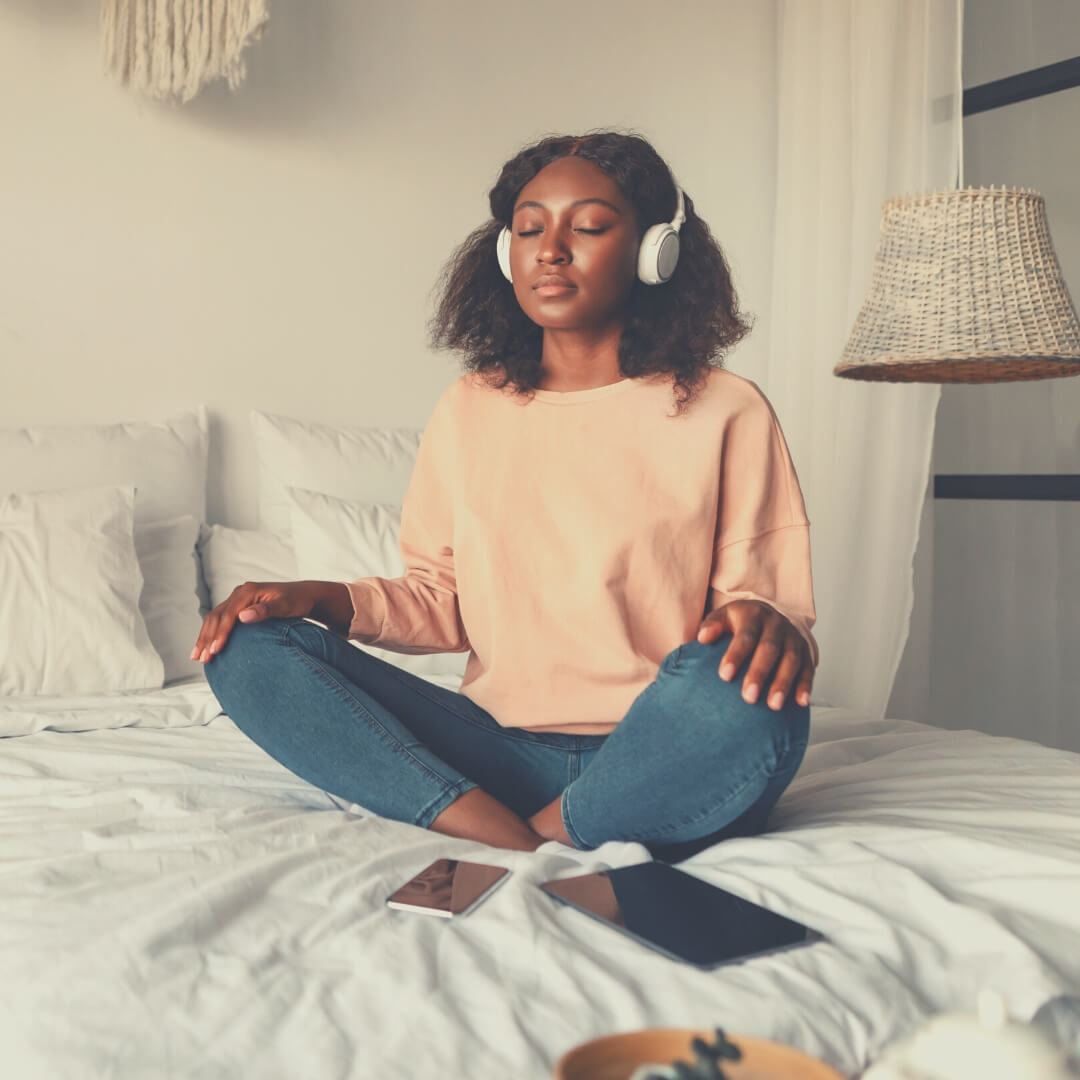Annoying people are so annoying, right? Well, what if you are the one annoying others?
Maybe you are self-centered, just focused on your needs and desires? Or do you constantly interrupt others? Or do you just bug people in so many other ways?
If people avoid you, have told you directly that you are an irritating presence, barely tolerate you, or treat you like you are a pest, you may have an issue with being annoying.
The good news is that you can change your life around and stop being annoying (or at least, be less annoying since what annoys one person, another may find kinda cute).
So here are the best strategies for how to be less annoying so you can grow as a person and not irritate others.
Why Are Some People So Annoying?
There are various reasons why some people can be annoying:
An anxiety response
Very few people are annoying on purpose. It’s often an anxiety response triggered by listening to the negative, critical voices in their mind that makes a person question their purpose, their connections with those around them, and more.
The annoying person’s mind is so filled and loud with negative self-talk that they can’t see the other person, much less empathize with them. And so their responses or actions are annoying.
Having an off day and annoyed with themselves
Stress and anxiety make people act out of sorts. If the person is having a bad day, they’ll do stuff that irritates others.
So while they aren’t constantly annoying, they can be irritating for a day or week until the stress subsides (and they are able to think more clearly and act appropriately).
Acting fake
Inauthentic people put forth a persona, and their fake personality can be annoying because it’s often so over the top. You may also be annoyed by their behavior once you’ve seen the cracks (showing that they have a put-on persona versus their real self).
Be judgmental
It’s irritating when others look down on you, believing they are “God’s gift to the world.” Whatever they do, think, or say screams that they are better than you.
Feel triggered by events, trauma, or people
It’s the environment that can bring out the annoying aspects of a person’s personality.
For example, if a person doesn’t like their colleague whom they’re stuck on a project with, they may (consciously or unconsciously) act in annoying ways. And maybe that person is annoying them, so they are responding in kind.
Are insecure
A person who is insecure about themselves and lacks self-confidence may be annoying. They experience a lot of fear because they don’t feel or believe that they aren’t good enough.
So they may constantly check in with you. They’ll ask if you still like or love them, if they did the task correctly, and more.
This kind of behavior gets annoying quickly, especially if you don’t understand where it’s coming from.
Their upbringing and poor interpersonal skills
If a person wasn’t properly socialized as a child or taught what socially acceptable behavior is, they may have picked up annoying little interpersonal habits and behaviors.

For example, if they constantly interrupt you, they learned that was okay as a child (since their parents or caretakers never corrected their behavior). Thus, they may not know any better.
Have a lack of awareness
Annoying people also tend to be unaware (especially if they aren’t being annoying on purpose). They don’t know that what they are doing is irritating, and even if you try to subtly tell them, they still just don’t get it.
Trying to seek attention
People who have a need for attention can be annoying. They’ll engage in various behaviors, including bad mouthing others or gloating about their success, to make themselves the center of attention.
Cultural differences
Cultural differences can also account for why some people are annoying. Perhaps what they are doing is considered polite and normal in their society or culture, but for others, they don't seem to be behaving in socially acceptable ways.
For example, Brits find it annoying when Americans are loud, too nice, or speaking too directly.
What Makes People Annoying?
There are many behaviors that can make a person annoying. They:
If you recognize any of these traits in yourself, don’t panic. The good news is that you can put into place ways to be less annoying that actually work… and some rather quickly. The first step is acknowledging the need for change.
11 Strategies to Be Less Annoying
Here are the best strategies to follow so you can be less annoying:
1. Practice Gratitude
Including gratitude (and lots of it) in your life will help silence your inner critic and negative self-talk because being thankful helps block toxic emotions, which destroy your inner peace and happiness.
So wake up each morning and go to bed each night with gratitude in your heart. Say out loud, actively think, or write down what you have to be grateful for.
Focus on the smaller and the bigger things in your life as they all deserve equal measures of thanks-giving.
The more you practice gratitude, the less often that anxiety response, judgment, and insecurity will pop up, and the less annoying you’ll be for others.
2. Pick up Social Cues
You may be annoying because you don’t properly read or understand social cues like body language, facial expressions, tone of voice, and other non-verbal forms of communication.
These social cues tell you how other people feel (and it may be an addition to what they say or in contrast to it, revealing their true feelings).
Practice social interactions, but take it slow. Choose a networking event, having coffee with your colleague, or even dinner with your family. Reflect afterward how the interactions went, noting down social cues, what they mean, and how you responded.
With each subsequent interaction, do the same and practice reading social cues and responding more appropriately and in a less annoying way.
Of course, you may need to study up on various social cues before you start practicing.
3. List What Annoys You
This strategy for how to be less annoying may sound like the opposite of what you should be doing but it’ll help (I promise).
List what annoys you. What does your family, friends, coworkers, and even strangers do that annoys the heck out of you?

Take a week or two to make a comprehensive list. Then, keep in mind a few items when you interact with someone and see if that’s what you do. Tick off what you’ve noticed about yourself and your annoying habits.
Once you are aware of what you do that annoys others, you can work on changing it and stop being so annoying.
4. Consult Loved Ones You Trust
If you are unsure what you do that’s annoying or prefer to make sure, ask the people in your inner circle whom you trust.
You need to ask people who are safe and healthy for you because they’ll only want the best for you and share their opinion with kindness. Toxic people may be dishonest or hurt you if you ask them.
When you talk to your trusted loved ones, tell them you want to improve your social skills and you are worried that you are annoying (or have annoying habits). Ask them for honest feedback about what they find annoying about you.
You can also request that they let you know if they notice an improvement (and you are less annoying).
If you don’t have anyone you trust, consider seeing a mental health professional to help you.
5. Find the Cause of Your Annoyingness
Sometimes, you can only improve, change, and stop being so darn annoying once you know and understand the why behind it.
You’ll have to dig really deep to find the root cause of your annoying behavior. If you are an attention seeker, ask why you feel like the focus or spotlight needs to be on you all the time? If you never take responsibility or keep promises, what are you afraid of?
Consider journaling about it or talking to a professional for guidance.
6. Go Back to Basics (All about the Manners)
One way to be less annoying is to ensure your basic manners and social etiquette rules are intact and you are using them.
Be mindful of saying please and thank you, asking for permission when needed, holding the door open for someone, and not slurping your drinks.
When you have good manners, you tell others that you care and value them, which will never make you annoying (unless it’s the other person who has issues, in which case, it’s not on you).
7. Practice Your Active Listening Skills
When you actively listen to what other people are saying (and not saying), you can respond more appropriately (and less annoyingly). Active listening helps you because you aren’t focused on yourself and your responses.
When you actively listen, remember to:
8. Identify What Triggers You
You may only be annoying to others when you feel triggered or have triggering thoughts. So it’s essential to be aware of this.
Once you know what you do that’s annoying, you can practice mindfulness so you can identify your triggers. Are there specific places, people, events, actions, or behaviors that bring out strong emotional reactions in you?
If you know that you respond in an annoying fashion when your friend is being a jerk, you can actively decide how you want to handle the situation.
For example, you can choose to avoid your toxic friend, work on another (less annoying) way to respond, or walk away.
9. Don’t Fish for Compliments
You could be highly annoying when you always fish for compliments. You are looking for outside validation because you have low self-esteem.
To change your toxic behavior, become more self-aware, improve your self-esteem and self-confidence, and learn to validate yourself.
Practice positive self-talk, accept that you are a flawed human being but that you are working on yourself, learn that you are enough, do self-care and practice self-love and self-kindness, notice and accept your feelings, and prioritize yourself.
This will teach you that you don’t need to fish for compliments. You can compliment yourself (and should, frequently) and feel secure in yourself and your abilities. So while external validation is nice, you don’t need it to thrive.
10. Don’t Give Unsolicited Advice or Opinions
When you always (or frequently) give someone advice and an opinion they didn’t ask for, it becomes annoying. But it also indicates that you don’t actually care about them, you disrespect them, and you are being presumptuous.
Honestly, you are not in their shoes, so you shouldn’t pretend to be. You cannot jump in and tell them what you’d do if your roles were reversed. You don’t know better and you certainly don’t have all the answers, so don’t pretend that you do.

So next time someone tells you about a challenge or tough day, listen (and think before you speak).
That’s all you have to do. Hold space for them and be there so they know they can turn to you when they need to and when they are ready.
If they are a close friend, you can ask them if they’d like you to listen, help them problem-solve, or offer advice. Give them the choice, and you won’t be annoying at all.
11. Stop One-Upping People
You know that person who always tells you about the worst day in their life when you share your struggles. Or that person who brags to you about the many successes they’ve had when you say you’ve been promoted, got your degree, or finally bought a house.
They one-up (or up-stage) you because everything is a competition for them. That is, the good AND the bad.
If you do this to others, it’s annoying.
While you can share relatable stories, ensure you are showing empathy and not one-upping. And if you are worried you don’t know where the line is, keep the focus on the person who is sharing about their hardship or success.
Ask questions, learn more, and show interest.
If you do share a story, keep it short. Remember, the story is to show them that you understand and feel for them. You aren’t sharing because you are competing with them about who has had the worst day or most success or that you want the attention on you.
Final Thoughts on How to Be Less Annoying
It’s difficult to realize that you’ve been annoying, and it may be even more challenging to change your behavior for the better so you can be less annoying (or maybe just not annoying).
To learn how to be less annoying, start by asking the people you love and trust most for feedback.
Next, identify the root causes and triggers for your annoying behavior, practice gratitude, go back to basic manners and social cues, become an active listener, and stop giving advice no one asked for (or wanted).
If you are worried that your annoyances are making you a toxic person, check out this guide on the 30+ toxic personality traits you should watch out for. And then work on yourself to become a safe and healthy person for yourself and others.
And if you're looking for more posts on how to interact with people, be sure to check out these blog posts:
- 21 Effective Strategies to Stop Interrupting People
- 7 Crucial Steps to Deal with a Toxic Employee
- 13 Proven Ways to Emotionally Detach from Someone


